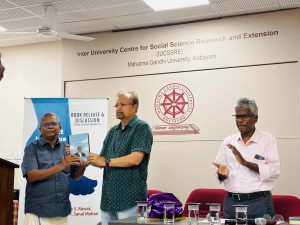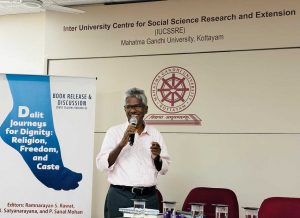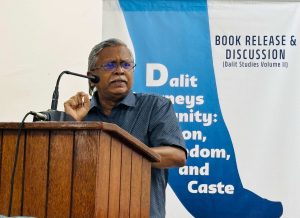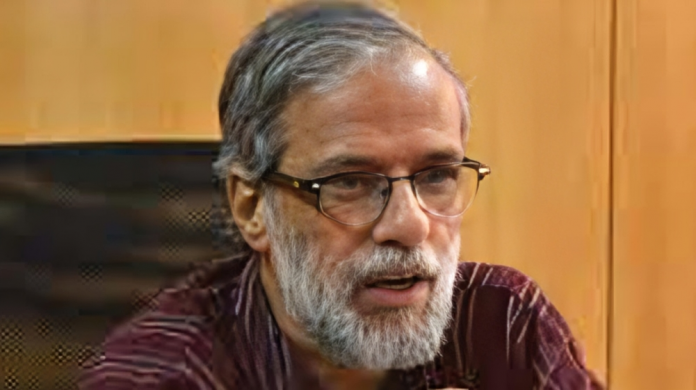“Dalit Studies in India draws its strength from Ambedkar’s radical critique of caste and his insistence on dignity, self-respect, and rights,” observed Prof. Rajan Gurukkal, Vice Chairman of the Kerala State Higher Education Council. He was delivering critical reflections at the release of Dalit Journeys for Dignity: Religion, Freedom, and Caste (Dalit Studies Volume II), organised by the Dalit Studies Collective in collaboration with the Inter University Centre for Social Science Research and Extension (IUCSSRE), Mahatma Gandhi University.
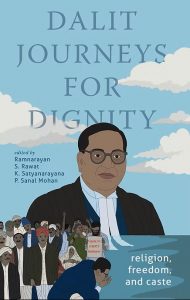
Prof. Gurukkal pointed out that Ambedkar’s intellectual and political interventions created the epistemological framework for Dalit Studies. By challenging Hindu scriptures and dominant caste narratives, Ambedkar not only exposed the ideological foundations of caste oppression but also placed dignity and social justice at the heart of democratic life. His vision, Gurukkal said, continues to guide Dalit scholarship as it interrogates exclusion and asserts subjectivity.
He noted that the emergence of Dalit literature in the 1970s and 1980s was a turning point in this intellectual trajectory. These works, instead of merely portraying victimhood, articulated Dalit agency and affirmed the right to self-representation. In Malayalam, poems like Kadamanitta Ramakrishnan’s Kurathi opened new intellectual and cultural spaces. They did not simply narrate pain but also redefined equality and justice by compelling readers to confront the humanity, dignity, and lived experience of Dalit communities. Such interventions, Gurukkal argued, were crucial in expanding the scope of Indian social sciences.
Emphasising the need for Dalit epistemology, Gurukkal said that authentic scholarship must recognise the right of Dalits to theorise their own histories and struggles. Knowledge derived from lived experience, he explained, not only enriches the social sciences but also challenges dominant frameworks that often bypass caste. According to him, Dalit theorising brings a vertical critique that deepens our understanding of dignity, agency, and equality, while also breaking the long silence around caste-based inequalities in Kerala and beyond.
The programme also included discussions by Dr. Shine P.S., Prof. T.M. Yesudasan, and Prof. K.M. Seethi. The session was moderated by Prof. P. Sanal Mohan, co-editor of the volume and Visiting Fellow at IUCSSRE. Dr. Jestin Varghese welcomed the participants.
